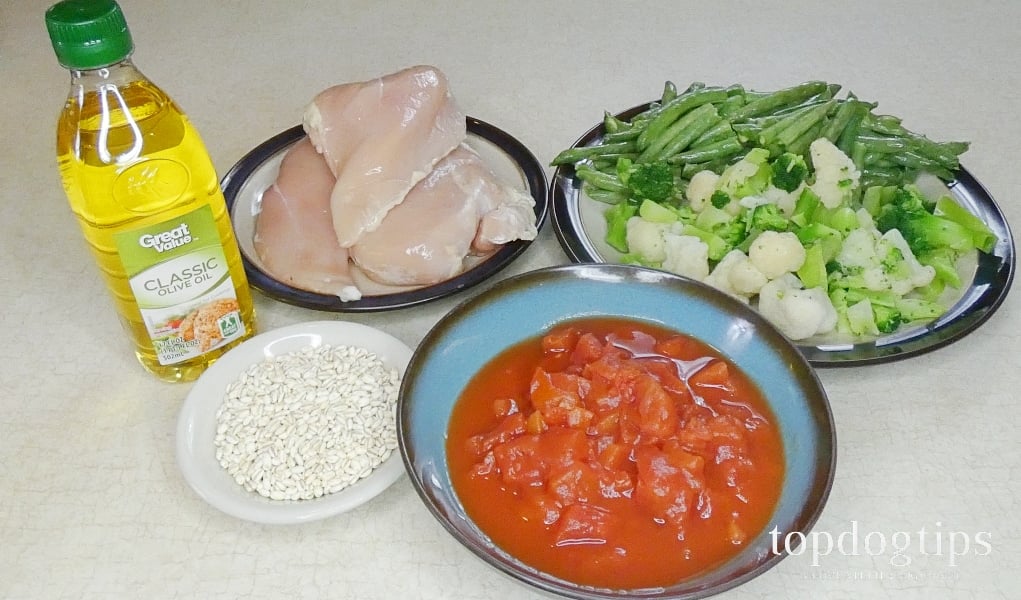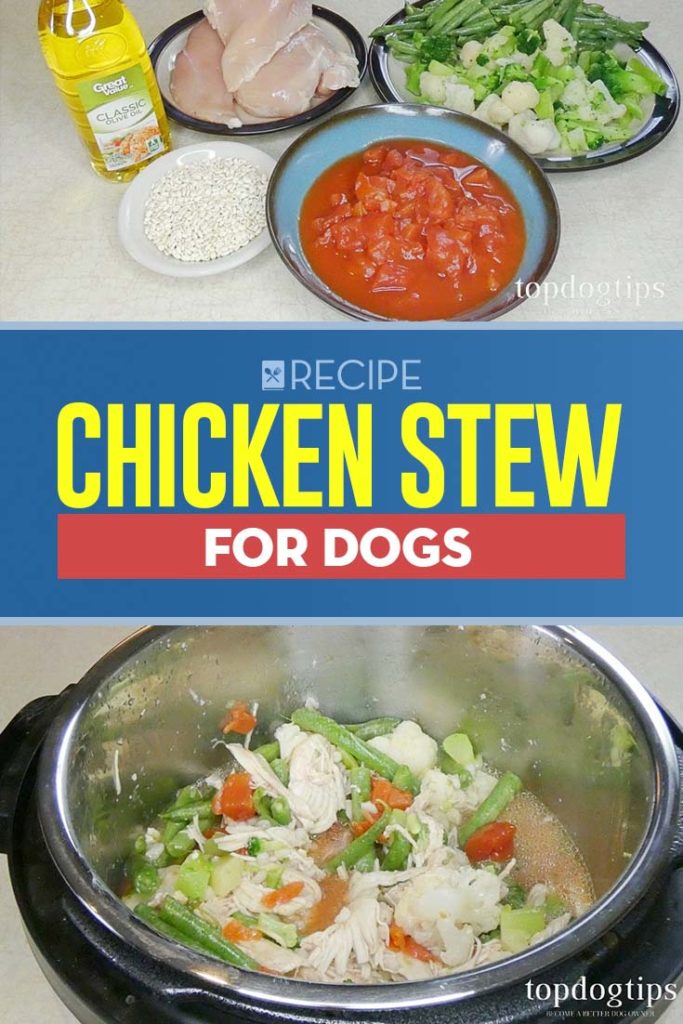This homemade chicken stew for dogs recipe isn't just going to entice your pet. There's a good chance you'll want to have a bowl for yourself! The good news is that you can share this meal with your canine companion. It is made with nutritious whole food ingredients that are safe and healthy for dogs and humans.
Homemade dog food takes longer to prepare than commercial diets, but its advantages easily outweigh this drawback. When making homemade dog food, you can use the best quality ingredients that you can afford. That means that you can make organic, all-natural dog food that is more appealing than any commercial kibble.
Many commercial diets are made with artificial ingredients, fillers and other junk that does more harm to your pet's body than good. As I'm sure you already know, the top-quality commercial grade dog foods that are made with all-natural and organic ingredients are very pricey.
This chicken stew for dogs isn't just healthy; it's also budget-friendly . You can substitute vegetables that are in season or foods that you grow in your own backyard. You could also use a different protein source if your pet prefers beef, venison, etc…
Homemade Chicken Stew for Dogs Recipe
 Ingredients
Ingredients
- 4 lbs. boneless, skinless chicken breast
- 1 cup pearl barley
- 1 3/4 lb. diced tomatoes
- 1 lb. chopped green beans
- 1 lb. chopped cauliflower and broccoli mix
- 4 cups water
- 2 tbsp. olive oil
Directions
Add the chicken breast, water and barley to a slow cooker. Cook on low for 4 hours. Once the mixture has finished cooking, shred the chicken breast inside the crock pot.
Add the tomatoes, green beans, cauliflower, broccoli and olive oil. Stir the ingredients to combine. Cover and cook for 1 more hour.
The recommended serving size is about 1/2 cup for every 20-25 pounds of body weight. This recommendation is for 2 servings per day. For example, if your dog weighs 25 pounds, he would eat about 1/2 cup in the morning and 1/2 cup in the evening (read more here).
Keep in mind that this serving size is a recommendation. Active dogs may need more calories, while lazier dogs may not need as many. Be sure to consult your veterinarian or a canine nutritionist for the best advice on the proper portions for your dog.
READ NEXT: What Supplements You Need for Homemade Dog Food











